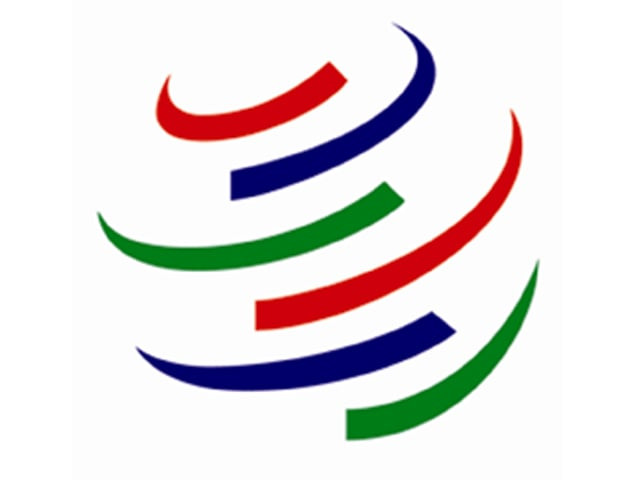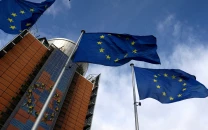Free trade: ‘Pakistan, India both violating WTO rules’
Commerce secretary says New Delhi and Islamabad need to remove non-tariff barriers.

Like Pakistan, India too is violating World Trade Organisation (WTO) rules by opting for a discriminatory investment regime against Islamabad but the policymakers are not interested to push New Delhi to amend its rules before doing the same themselves.
In a briefing to the media here on Friday, Commerce Secretary Zafar Mahmood said India has Pakistan-specific non-tariff barriers to restrict trade in services and block investment from Islamabad. He, however, said New Delhi did not have non-tariff barriers for trade in goods.
He said he had discussed this issue with his Indian counterpart but the government would not push for resolving the issue before establishing a non-discriminatory trade regime, commonly known as the most-favoured nation status.
Pakistan is not complying with the WTO regime and has added Annexure G to its Export Policy Order that restricts import of Indian goods to only 1,958 items.
The cabinet has authorised the commerce ministry to negotiate with India normalisation of bilateral trade.
“Pakistan will first negotiate outstanding issues on goods and then matters relating to services will be taken up,” said Mahmood while responding to a question.
Commerce Minister Makhdoom Amin Fahim, who was also present during the briefing, dispelled the impression that Pakistan was dragging its feet on trade normalisation with India under pressure from military circles and said “all stakeholders are on board for trade normalisation including the military”.
He said Indian Commerce Minister Anand Sharma would visit Pakistan from February 13 to 16 in an effort to push forward the trade normalisation process. A delegation of Indian businessmen will accompany the minister and will take part in the “Made in India” exhibition.
Fahim said the ministry has moved a summary to Prime Minister Yousaf Raza Gilani, seeking his permission to allow India to display even those goods that could not be imported from India presently.
During the visit, Pakistan would negotiate three pacts with India to ensure a level playing field for its exporters before implementing the free trade regime, said Mahmood.
First is customs cooperation agreement to address Pakistani exporters’ complaints about high taxes in India, second is mutual recognition agreement for standardisation of quality standards and third is grievances agreement to address consumer protection issues.
In September last year, Pakistan decided to replace the positive trade list comprising 1,958 items with negative list by February 2012. However, Fahim said the negative list, containing items that would not be traded between the two countries, would only be implemented after ensuring protection to the local industry.
He said Pakistan may impose quotas on Indian imports under safeguards policy, duly recognised by the WTO.
However, the minister urged pharmaceutical and automobile manufacturers to increase their competitiveness instead of seeking protection.
WTO waiver
Fahim announced that the WTO would likely give a waiver to the European Union package for duty-free access to export of 75 items from Pakistan. He said the WTO’s Committee on Customs Valuation of the Council for Trade in Goods would meet on February 1 as all opposing countries have withdrawn their objections.
However, the commerce secretary said to address the concerns of competing countries like Bangladesh, Brazil and Peru the EU has proposed imposition of quotas on duty-free exports. He said the quota would be 20 per cent higher than average exports made to Europe in the last three years.
The EU had offered duty-free exports in response to the devastating floods of 2010 but the matter has dragged on in the WTO due to opposition from India and other countries.
Published in The Express Tribune, January 21st, 2012.


















COMMENTS
Comments are moderated and generally will be posted if they are on-topic and not abusive.
For more information, please see our Comments FAQ